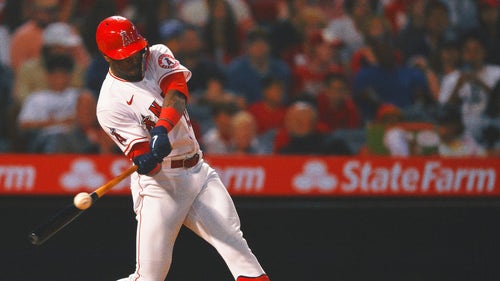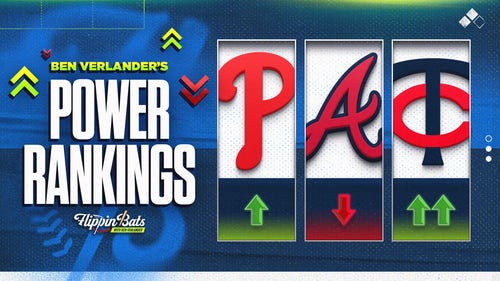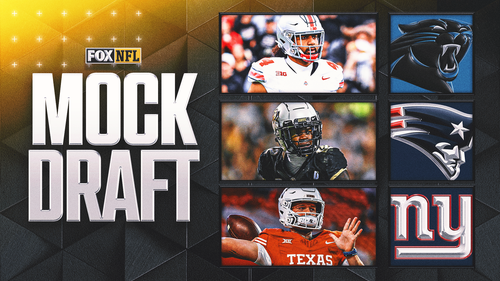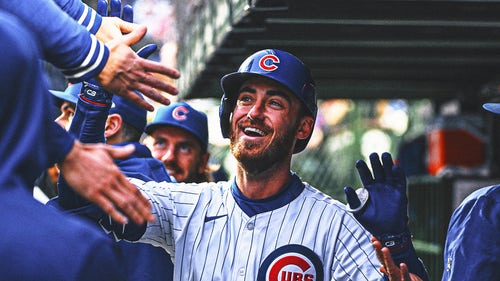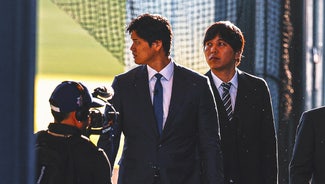
MLB facing new ownership woes
Almost by definition, owners cannot be on the hot seat. It’s the owners who create hot seats, hiring and firing, then hiring and firing some more.
One year ago Wednesday, however, baseball provided an exception.
One year ago Wednesday, the Los Angeles Dodgers announced that Frank McCourt would sell the team to Guggenheim Baseball Management, culminating the efforts of Commissioner Bud Selig to oust McCourt as owner.
No current owner is using his team as his personal ATM, the offense that prompted Selig to act on McCourt. But baseball, as always, is hardly devoid of ownership concerns.
As Opening Day approaches, three franchises should draw particular scrutiny from Selig, while three more face their own vexing problems.
First, the three that bear watching:
Miami Marlins
What, you expected the Cardinals?
Here is the problem with the Marlins, even if their latest slash-and-burn rebuilding plan works, as it very well might:
Such is the distrust of owner Jeffrey Loria, fans might shun even a winning club.
Marlins Park, only a year old, could be a ghost town this season. The season-ticket base is down to about 5,000, according to a major-league source. It’s not a good sign that the team is offering fans who buy an Opening Night ticket a free ticket to any game in April or May.
Selig made no secret of his concern over the Marlins’ latest series of salary dumps, culminating with the trade of right-hander Josh Johnson, lefty Mark Buehrle and shortstop Jose Reyes to the Blue Jays in November.
The commissioner took six days to approve that deal, then put the Marlins on public notice with a statement saying that he would continue to monitor the franchise. But forcing out Loria would be tricky, at least short-term.
If Loria sells before 2015, the city of Miami and Miami-Dade County would receive a share of the profits under the terms of the team’s stadium deal, according to the Miami Herald.
Selig, as is his custom, probably will let the clock run on the Marlins, waiting for the situation to resolve on its own. If fans stay away in massive numbers, Loria might see little choice but to sell.
Houston Astros
The over-under for the Astros’ projected number of losses as they move to the AL West has been a popular topic among scouts and executives at spring training.
Will it be 100, 105, 110?
The Astros lost 106 and 107 games the past two seasons playing in the NL Central, and now owner Jim Crane is taking his payroll down to the $20 million to $25 million range.
But just Tuesday, Selig defended the Astros, telling the Houston Chronicle, “If their rebuilding program is as good as I think it is and they think it is, they’re going to create a lot more great memories in future years.”
Others in the sport strongly disagree.
Both agent Scott Boras and Hall of Fame writer Peter Gammons said recently that the Astros are damaging the game’s integrity by accepting revenue-sharing dollars while making little attempt to be competitive, the better to position themselves for high picks and greater bonus pool money in the draft.
Some rival executives actually are somewhat envious of the Astros’ approach, calling it a pure form of rebuilding, without concern for competitive or financial consequences. Except the consequences could prove quite real: The Astros’ short-term sacrifice could significantly erode their fan base, inhibiting their long-term growth.
Team revenues are expected to be flat this season, according to a major-league source, but should rise next season due to increases in local and national television contracts.
Houston is not Hoboken; the Astros’ payroll then should start to rise accordingly.
New York Mets
In some ways, they, too, are on the right track.
The trades of outfielder Carlos Beltran and right-hander R.A. Dickey yielded potential cornerstones. The team’s young pitching, in general, is a source of excitement. And the signing of third baseman David Wright to an eight-year $138 million extension in December indicates, at some level, a willingness to spend.
Owner Fred Wilpon said at the start of spring training that the team’s finances were improving and that he would expand the payroll when appropriate. But the Mets’ actions, with the exception of the Wright signing, do not match Wilpon’s words.
The Mets talked about signing free-agent center fielder Michael Bourn, but did not. They talked about trading for outfielder Justin Upton, but did not. Their most expensive free-agent addition, right-hander Shaun Marcum, cost a relatively paltry $4 million — and already is injured. Meanwhile, the feeble state of the Mets’ outfield is an industry punch line.
Average home attendance has fallen in each of the past four years, from 38,941 in 2009, the first year of Citi Field, to 28,035 last season. The decline could continue this season, even with the Mets hosting the All-Star Game.
Wilpon and Selig are close. Wilpon is the game’s second-longest tenured owner. But the question remains how long must Mets fans wait for their team to resume acting like a big-market franchise?
Now, the three teams with their own problems:
Oakland Athletics
Actually, it’s the Athletics and Giants, squabbling over the A’s proposed move to San Jose in baseball’s version of the 100 Years War.
In truth, it has been only four years since Selig appointed a committee to evaluate the Athletics’ plans to relocate.
Four years that seem like 100.
A little more than a month ago, Bill Shaikin of the Los Angeles Times reported that baseball had given the A’s potential guidelines for a relocation to San Jose.
Shaikin, though, added ominously, “The existence of the guidelines does not necessarily mean the A’s will move to San Jose soon, or at all.”
The issue, as everyone knows, is complex.
The A’s would need to demonstrate to baseball that their new ballpark is feasible. They would need to compensate the Giants for relinquishing their territorial rights to San Jose. And they would need to persuade 75 percent of the owners to approve their move.
For now, the 100 Years War continues.
Baltimore Orioles
Another showdown between neighboring clubs. Another seemingly impotent baseball committee. But an entirely different issue.
The dispute between the Orioles and Nationals is over the Nats’ TV rights fee from the Mid-Atlantic Sports Network (MASN), which is controlled by Orioles owner Peter Angelos. Selig at one point found the disagreement even more vexing than the A’s-Giants standoff, according to one source.
In December, baseball asked a private investment bank to seek buyers for the TV rights of both franchises, according to the Washington Post. A source says the matter may be nearing resolution, but does not say when or how.
MASN is co-owned by the Orioles and Nationals, but under terms of the Nats’ relocation to Washington, D.C., the Nats’ share never will be more than 33 percent.
The agreement calls for the rights fees of both teams to be reset every five years. After the 2011 season, the Nats wanted an increase from $29 million to between $100 million and $120 million, according to the Post. And that is where the trouble began.
The Nats’ principal owner, Ted Lerner, will get his money eventually — both for the required adjustment in 2012 and subsequent years. But Angelos, a famed trial attorney, is known as a painstaking and difficult negotiator. That’s how he got the sweetheart deal to create MASN in the first place.
Tampa Bay Rays
New ballpark needed — ASAP.
One obstacle is that the Rays’ lease at Tropicana Field runs through 2027. Another obstacle is public financing, particularly after the outrage in South Florida over the Marlins’ boondoggle.
Then there are the questions about the market itself — the Rays ranked in the bottom two in attendance the past two seasons despite producing 90-win teams and playing a combined six home series against the Yankees and Red Sox.
Baseball would want to see evidence that Tampa Bay-St. Petersburg is a viable long-term market before it would encourage the team to commit to a new park, according to one source.
The Rays could start exploring sites in Tampa and St. Pete at any time, but a solution is not within easy reach.
“I’m not sure what Bud can do,” the source said, “other than open up New York City for a third team.”
Now there’s an idea — if Selig wants to tick off the two New York franchises and create his own hot seat.









































































































































